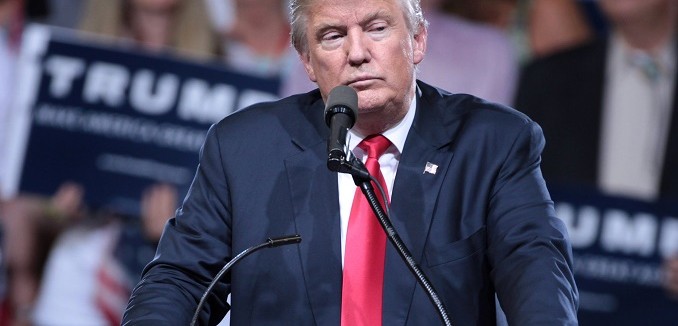The Middle East that President-elect Donald Trump will inherit when he assumes office in two months is, as a foreign policy advisor to the last two presidents told The New York Times last month, “seemingly in free fall.”
Among the challenges that Trump will have deal with: wars in Syria, Iraq, and Yemen; a Kurdish push for independence; a regional power struggle between Iran and Saudi Arabia; Iranian non-compliance with the nuclear deal that it signed last year; and the unresolved Israeli-Palestinian conflict.
Veteran foreign policy correspondent Michael Totten wrote in The Tower last week that when the next president weighs his policy options, “the best you can pull off right now is damage control.”
Totten called on the next president to reverse Obama’s strategy of putting “daylight” between the United States and Israel, observing that “it accomplished a grand total of nothing.” There has been no progress on a negotiated agreement between Israel and the Palestinians because “trying to force the Israelis to give up more than they already have…won’t do an iota of good if the Palestinian side remains rejectionist.” That assessment matches with that of Johns Hopkins University professor Michael Mandelbaum, who wrote in May that “peace requires that the Palestinians accept the norms of common decency and common sense: The Jews have the same right to sovereignty as any other people.” This would require that the Palestinians give up their so-called “right of return” and that the United States should make relinquishing that demand a condition for any future negotiations.
Speculation has risen over the past few weeks that there could be a push to influence Israeli-Palestinian negotiations via a United Nations resolution. Trump and his opponent, former Secretary of State Hillary Clinton, both stated that they were opposed to the UN imposing parameters on negotiations. They also both identified Palestinian rejectionism as a major obstacle to a peaceful solution. “Palestinian leaders need to stop inciting violence, stop celebrating terrorists as martyrs and stop paying rewards to their families,” Clinton said at the AIPAC Policy Conference in March. Trump echoed this the following day, saying, “You cannot achieve peace if terrorists are treated as martyrs. Glorifying terrorists is a tremendous barrier to peace. It is a horrible way to think. It’s a barrier that can’t be broken.”
Another major reason that peace has been elusive is the continued growth of the Palestinian terror group Hamas, which is armed and financed by Iran. The Islamic Republic is also backing terrorist groups and militias fighting in Iraq, Syria, Lebanon, and Yemen. Totten exhorted the next president to “start twisting the screws again posthaste, and you should make it clear that you’re going to do so before you’re even inaugurated” so that Iran will know “that you are not like your predecessor and shouldn’t be messed with.”
Trump and Clinton disagreed on the merits of the nuclear deal, but adopted very similar positions when it came to countering Iran’s regional ambitions. Clinton insisted at AIPAC that “vigorous enforcement” of the nuclear deal must be coupled with a “a broader strategy to confront” Iran’s aggression throughout the Middle East. Trump similarly promised at AIPAC to “enforce the terms of the previous deal to hold Iran totally accountable.” He also noted the presence of Iranian proxies in multiple Middle Eastern countries and promised to “totally dismantle Iran’s global terror network.”
[Photo: Gage Skidmore / flickr ]




